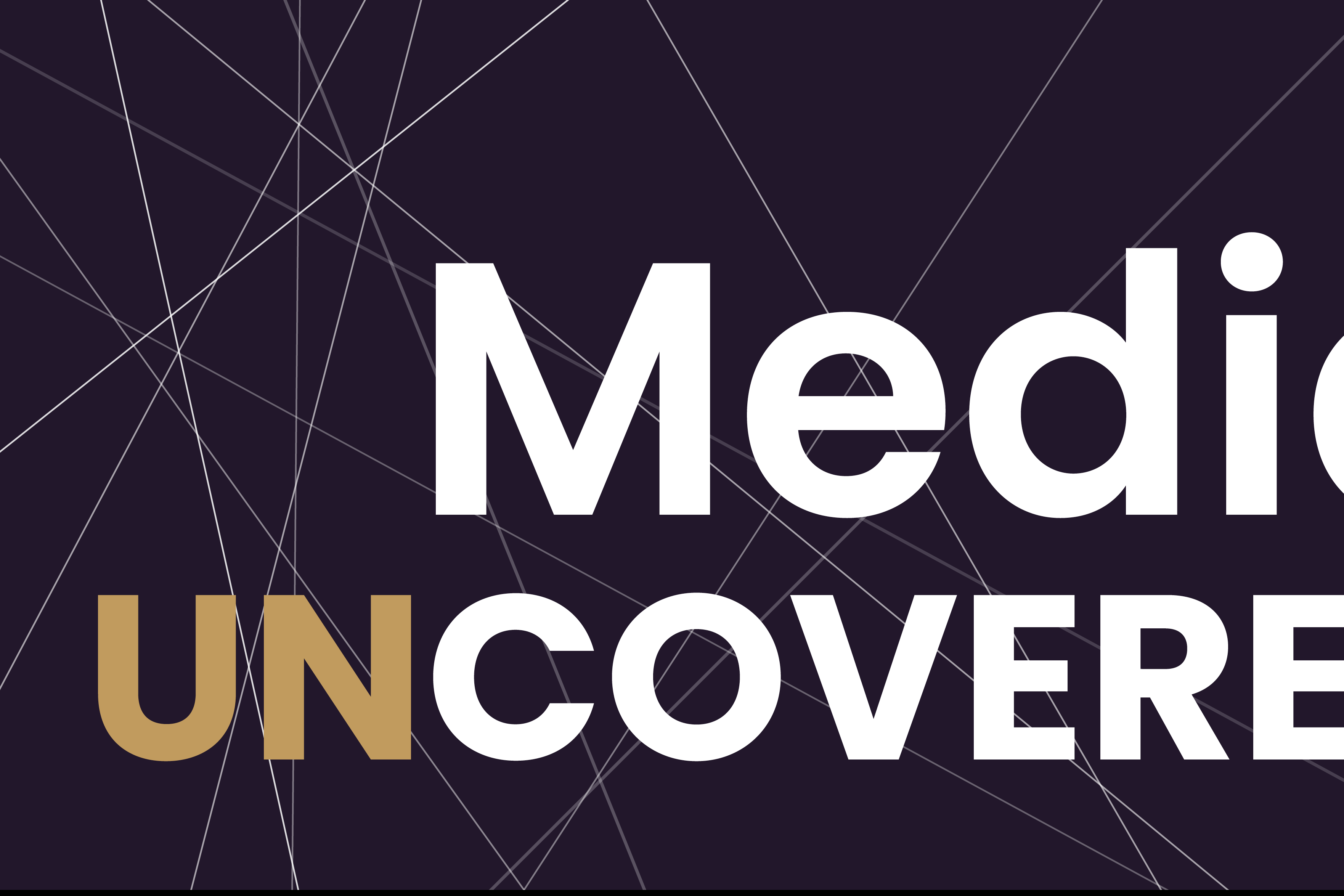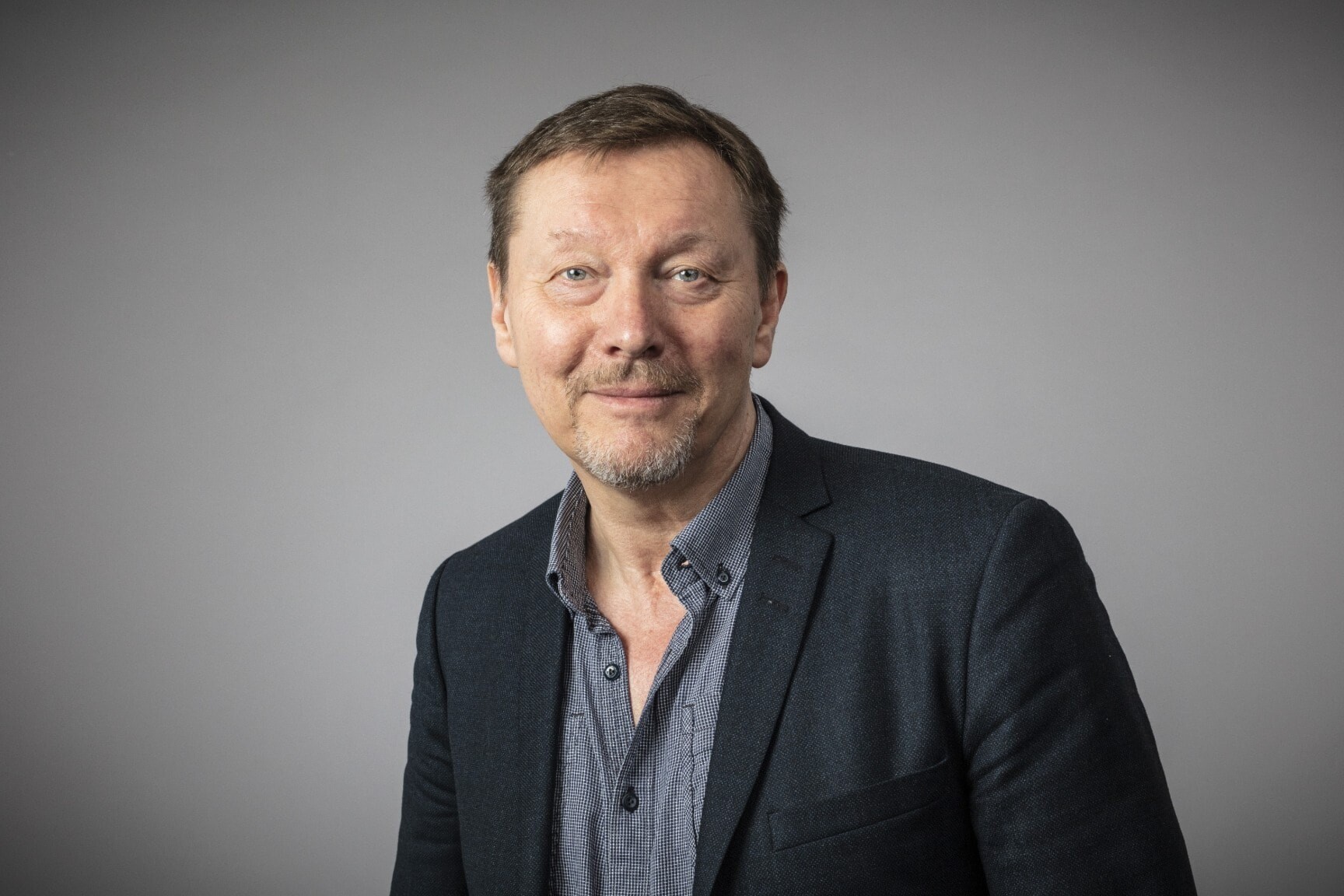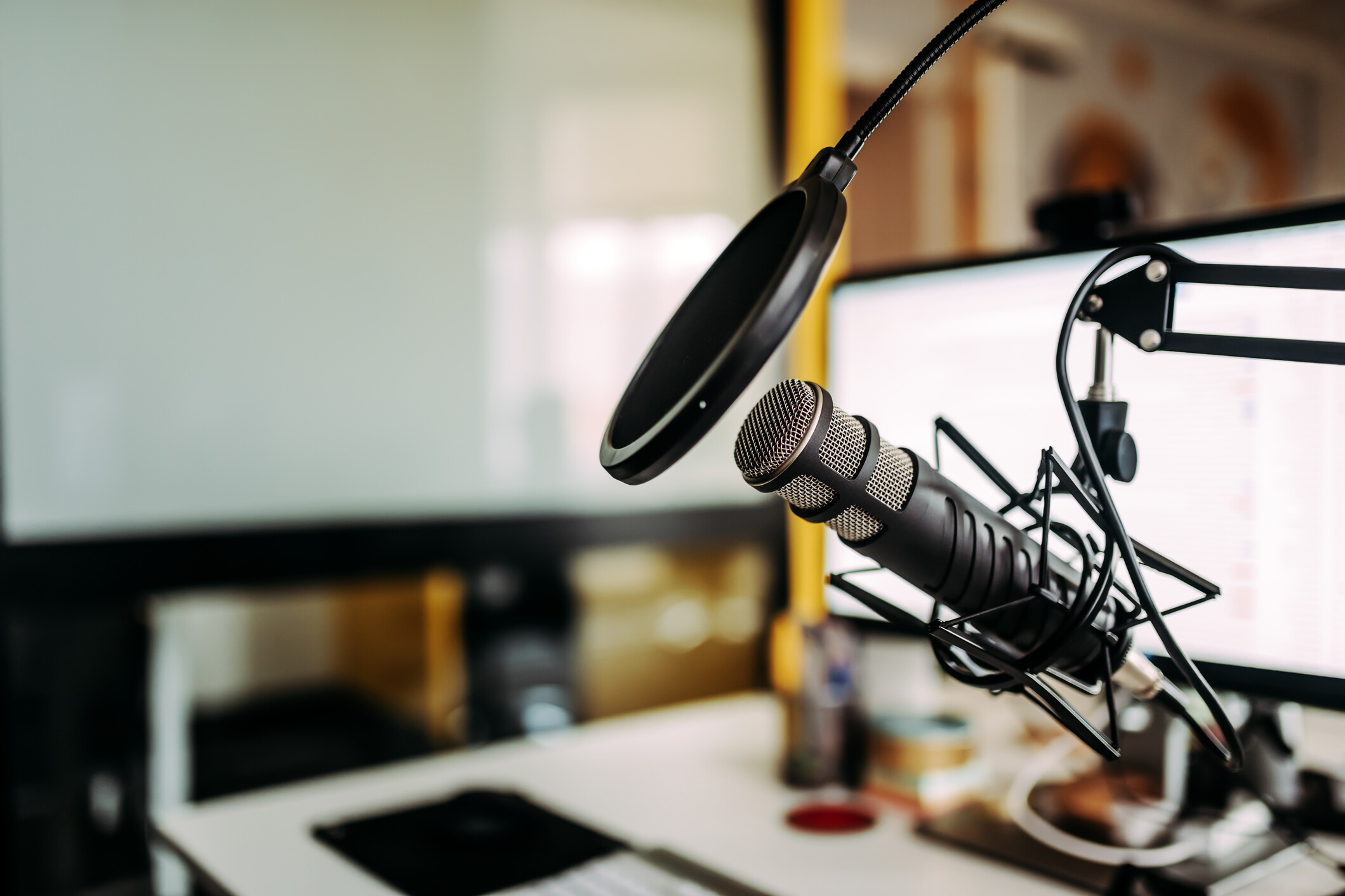From the escalating tensions at the start of the year, to the subsequent Russian invasion and atrocities, audiences globally have sought out trusted and timely news on the war in Ukraine, and to fill the need for information, public media have turned to podcasts.
It is no secret that podcasts are an increasingly effective and popular method being used by public media organisations to reach their audiences. Its attributes as on-demand, digestible, and easily accessible mean it aligns perfectly with audiences’ current listening habits.
But the war in Ukraine demonstrated just how critical a tool podcasting has become for public media. While public media maintains its television, radio, and online coverage, podcasting is the new frontier for information dissemination, especially for breaking news stories. No sooner had Russian troops entered Ukraine than public service media mobilised. Podcasts – normally requiring weeks or months of preparation and research before they are launched – sprung up within days, and many of them had unique approaches.
The BBC, for example, has produced three new podcasts dedicated to the war – Ukrainecast, War on Truth, and Putin. In this report, we explore Ukrainecast in detail and highlight other public media podcasts, each demonstrating the innovation and distinctiveness of public broadcasters.
BBC’s Ukrainecast
“In less than 48 hours, Ukrainecast went from an idea to a published podcast,” Jonathan Aspinwall, Senior News Editor – News Pods, wrote in an internal BBC publication.
Ukrainecast is the product of collaboration between BBC Sounds and BBC News – “[representing] these two areas at their very best and most nimble” – and this collaboration is one element that sets the podcast apart. Mr. Aspinwall said Ukrainecast could be a template for future collaborations on big breaking news stories. “The unpredictability of events means that we’ll need to continue to be nimble as we follow the devastating developments in this seismic story. The unique and strong relationship between BBC Sounds and BBC News means that we’re best placed to respond and bring clear insights on complex stories to audiences around the globe,” he said.
Another element that sets the podcast apart is the expert care its two presenters take in guiding audiences through the distressing testimonies of people experiencing the war on the ground. While Gabriel Gatehouse brings his deep regional knowledge to the discussion, Victoria Derbyshire is the listener’s voice. She also references the best interviews from her other news broadcasts. It is the presenters’ roles, chemistry, and conversational style that connect with audiences around the world, Mr. Aspinwall emphasised, a style the BBC developed and honed on Brexitcast and subsequently Newscast.
“The podcast is unashamedly intelligent, with one reviewer saying it can be like listening in on a top-level briefing in a bunker. Yet we’re also keen to ask the sometimes obvious questions that our audience are asking,” Mr. Aspinwall said. “I’m hugely proud of our talented News Pod team who’ve pulled off an intelligent and insightful podcast at great speed.”
Ukrainecast is part of a much bigger BBC News operation and draws upon work from those in BBC Monitoring and the BBC’s Language Services. It is also just one BBC podcast covering the war in Ukraine; War on Truth features BBC’s Disinformation reporter Marianna Spring as she covers stories from the information war in Ukraine, while with Putin, BBC journalist Jonny Dymond tells the story of the life of Russian President Vladimir Putin.
In a new Radio 4 podcast series, War on Truth, I follow people caught up in the extraordinary information war being fought over Ukraine.
A denial of reality waged by trolls, state media, influencers.
With @AdeaneAnt – first eps on Monday, trailer here. https://t.co/5yGWKzDNHA
— Marianna Spring (@mariannaspring) March 11, 2022
Jonny Dymond tells the extraordinary and revealing story of Vladimir Putin’s life with the help of guests who have watched, studied and dealt with the Russian president.
— BBC Radio 4 (@BBCRadio4) March 16, 2022
Radio Prague International’s News for Ukrainians in the Czech Republic
Its unique selling point? Practical information for Ukrainians in the Czech Republic
“To be in a foreign country, without friends, relatives, and information – how is it? We continue to fill the information vacuum for Ukrainians seeking refuge in the Czech Republic in the podcast of Czech Radio – Radio Prague International for Ukrainians in the Czech Republic.” – News for Ukrainians in the Czech Republic
Since 7 March, Czech Radio’s external service, Radio Prague International, has been publishing a new daily podcast, “News for Ukrainians in the Czech Republic”.
What sets the podcast apart is its focus on Ukrainian refugees in the Czech Republic, with the new project set to offer practical information for life in the Czech Republic, including how to access healthcare and schooling, find housing, and navigate public transport. Information about the podcast will be made available to the Ministry of Foreign Affairs so that it can inform relevant authorities and organizations, Czech Radio said.
The podcast builds upon other support Czech Radio has been providing to UA:PBC. A week before the podcast was launched, Czech Radio also begun an internet stream of the Ukrainian public broadcaster’s radio broadcast in Ukrainian.
Swedish Radio’s daily news podcast in Russian
Its unique selling point? An open API offering news in Russian
Just two weeks after Russia invaded Ukraine, Swedish Radio launched a news podcast in Russian about the ongoing war. With content drawn from Swedish Radio’s overall news offering, the podcast is published from Monday to Friday and is available for republishing via an open application programming interface (API).
We have made a journalistic decision to try to reach with factual reporting in a country where objectivity and impartiality are not available. As journalists, we want to act when the information about a war is kept secret.” – Björn Löfdahl, programme director for Swedish Radio
In explaining the rationale behind the podcast’s open API, Mr. Löfdahl, said, “By offering editors to publish the material via our open API, we are potentially opening up many paths to the podcast. This makes it more difficult to block or stop the content.” The podcast, he said, was created to “reach out with [Swedish Radio’s] factual reporting to a country where objectivity and impartiality are not available. As journalists, we want to act when information about a war is kept secret.”
Read more: Swedish Radio announces free-to-use daily news podcast in Russian
ARD’s Alles ist anders – Krieg in Europa
Its unique selling point? Aimed at people in their mid-20s
“Everything is different – in Europe, the world and for a young generation that has felt safe for decades. Suddenly there is war. We are all experiencing fear, uncertainty, anxiety and want to accompany you through this time and provide you with the most important information so that you can classify all these headlines.” – Alles ist anders – Krieg in Europa
First published on 1 March, ARD’s podcast “Alles ist anders – Krieg in Europa” (“Everything is different – War in Europe”) explains the background and context of the war in Ukraine and its developments. The podcast is a co-production of RBB, SWR, and WDR (regional broadcasters all under ARD) and is primarily aimed at people in their mid-20s, providing insight into the long-term context and historical experiences which led to this moment.
“It sheds light on the background of the war and deals with its emergence, with political positions and the effects of the conflict: What does Vladimir Putin want? Why does Ukraine stand between East and West and is not yet part of the EU? And what effects does this have on our society in Europe? The aim of the podcast is to be able to better understand the conflict,” an ARD press release explained.
The podcast is part of a series of different information offerings provided by the ARD Audiothek under the theme “Attack on Ukraine”. With episodes running between 20 and 40 minutes long, the podcast is presented in alternating teams of two and is published three times a week.
Radio France’s Guerre en Ukraine
Its unique selling point? Daily stories enriched by the lived experiences of special envoys and correspondents
Guerre en Ukraine from Radio France is a new format for the public broadcaster. Developed and published within two weeks of the start of the war in Ukraine, the podcast provides listeners with a day-to-day understanding of the situation through the personal experiences of on-the-ground special envoys and correspondents. The podcast was produced with the assistance of the International editorial staff for Radio France, France Inter, franceinfo, and France Culture.
“A daily story enlightened by our correspondents around the world, and offering you the best of our antennas.” – Grégory Philipps, Deputy Editorial Director of France Culture
According to Radio France, the daily podcast completes its information offer, with the special correspondents offering a behind-the-scenes look of their days on the ground in Ukraine, for example, sharing voice notes from their time in the country.
According to Grégory Philipps, deputy editorial director of France Culture and host of Guerre en Ukraine, “In 10 minutes each evening, I take you to the heart of the war in Ukraine, alongside our reporters in Kiev, Lviv, Odessa, the strategic points of the country, on the routes of refugees in Poland, Romania, Moldova. A daily story enlightened by our correspondents around the world and offering you the best of our antennas.”
NPR’s State of Ukraine
Its unique selling point? Several episodes published per day
“With reporters on the ground, conversations with politicians and officials, and breakdowns of what’s going on, we’ll bring you everything you need to know about the Russian invasion of Ukraine, multiple times a day.” – State of Ukraine
Within just six days of Russia’s invasion of Ukraine, NPR announced that it had launched a new daily podcast, “State of Ukraine” to bring listeners “everything they need to know”. It provides information, from the conflict’s past, future consequences, and what each new development means for the rest of the world. What sets the podcast apart is its publishing schedule: several new episodes are released each day. State of Ukraine features reporting from NPR journalists on the ground along with conversations with officials, other newsmakers, and experts.
NPR’s Ukraine war coverage is partly supported by a Corporation for Public Broadcasting (CPB) grant.
“NPR is the nation’s leading audio-first newsroom. The organisation is uniquely equipped to share on-the-ground reporting, voices, and perspectives from the region – and around the world – in an on-demand format,” said Neal Carruth, Senior Director of On-Demand News Programming. “We are proud to bring trustworthy and timely journalism to audiences as the conflict unfolds.”
Header image: Yellow headphones on blue background. Music concept. Credit: Alexandr Screaghin/iStock
Related Posts
15th March 2022
Swedish Radio announces free-to-use daily news podcast in Russian
Starting this week, Swedish Radio will…
30th November 2020
Podcasts and public media: children’s content
In this edition of our podcast series,…



